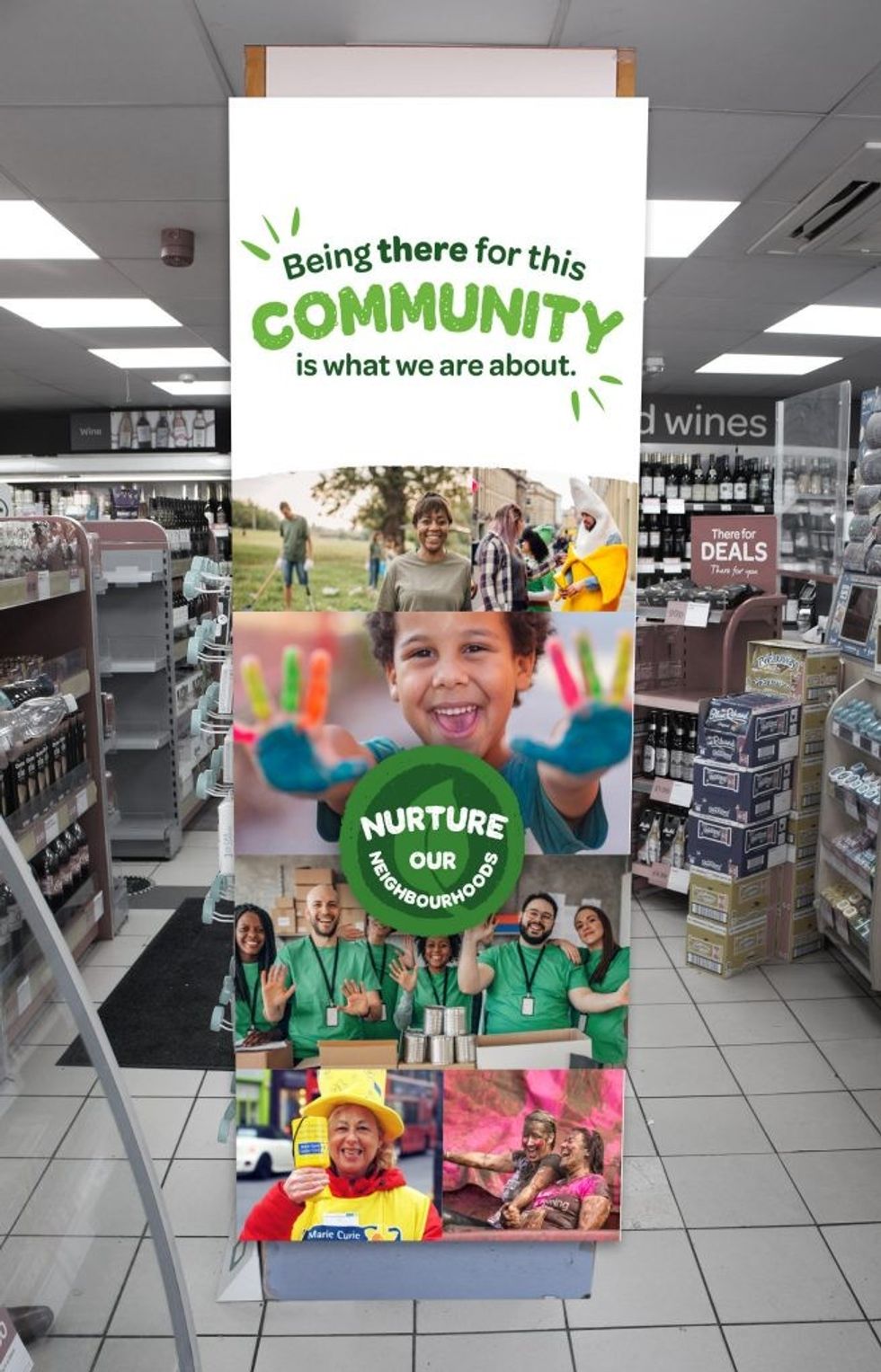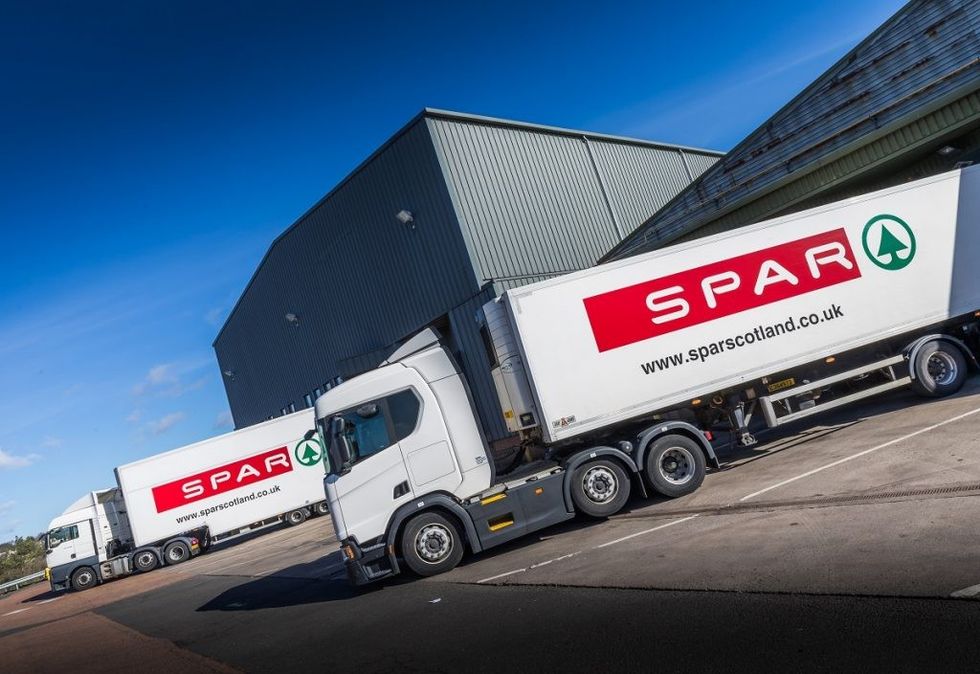Louise Hoste is MD of SPAR UK and has been in post for over three years, having taken over from Debbie Robinson in mid-2019. That means she has steered SPAR through the entire pandemic period and brought it safely out the other side. We joke that this means that after the disruptions of the past few years, it is almost as if Louise must feel she is finally beginning the job she first thought she would be doing.
I recall that pre-pandemic, Louise had said that convenience was a good channel to be in because of social changes and trends in its favour: “I think ‘little and often’ will continue to grow, food on-the-go will continue to grow, with people picking up breakfast on their way to work or popping out for lunch,” she said in an interview back then, adding that both those changes would play into SPAR territory, balanced with traditional missions such as top-up and impulse confectionery. "Convenience is an exciting sector to be in, but it’s ever-changing,” she concluded.
How does that viewpoint look now, following all the upheavals? Has the lockdown accelerated or changed any of this rosy future for SPAR and convenience, and has the recent cost-of-living crisis revised expectations?
“We see convenience as a positive channel and what we've seen through the pandemic is people shopping more locally, with two thirds of the population saying they're going to shop in local stores,” says Louise emphatically.
“All of the predictions are showing that convenience will continue to be a growth channel and that the ability of convenience to be a sort of ‘shopper’s store cupboard’ – meaning people increasingly shopping little and often at the local store – enables people to balance their budget in a different way.”
Local and often
That tendency towards “little and often” implies a more local factor in the shopping mission, which certainly accelerated during lockdown, and which has been underlined since then by the fuel crisis and inflation.
“Not having to necessarily travel to the local super-store in your car is an added advantage,” agrees Louise, “so I think we're set up in a good place. I also believe one of the aspects that people have enjoyed during the pandemic is reconnecting with people. A convenience store enables you to have that connection in your locality.”
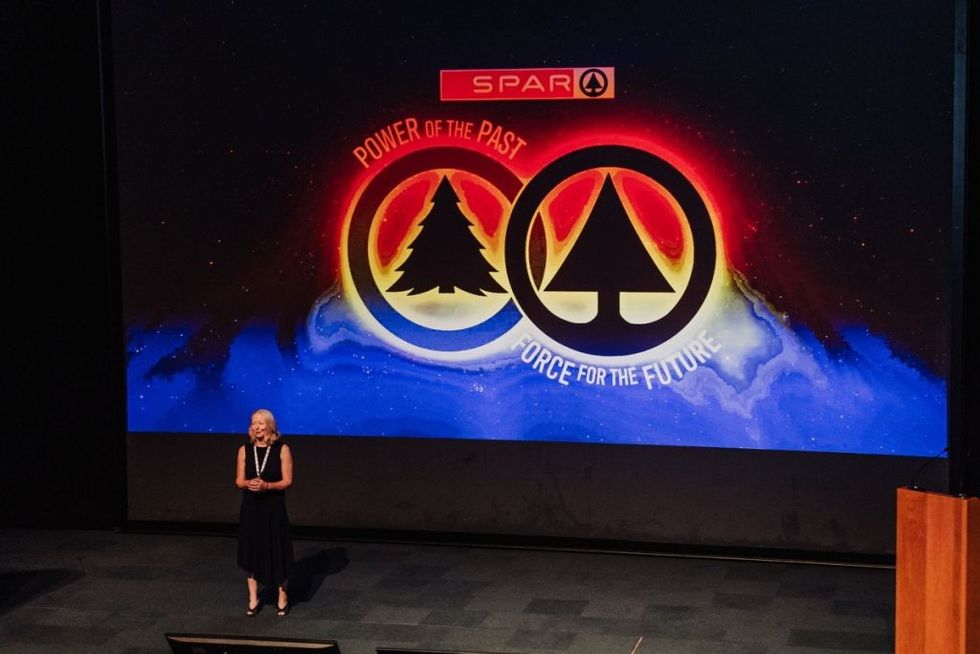
Immediately before Covid-19 arrived on these shores in the spring of 2020, SPAR UK had launched a review of its store formats, concentrating on the shopper mission and attempting, through innovations designed to be locally tailored, to embed the brand more deeply in communities. In-store elements such as food-to-go, build-your-own milkshakes, premium alcohol, self-checkouts and sit-down food areas with Wi-Fi and phone charging, not to mention experimenting with Barista coffee bars and in-store concessions (such as Greggs) were meant to make the experience feel more like home and tether consumers to the delights of their local store.
Then of course it was the lockdown, but Louise came out of it leading SPAR forward with a new UK-wide brand positioning – “The Joy of Living Locally" – in January last year, just as Omicron was fading away. That now looks like good timing and foresight.
Of course, SPAR is a little different from other grocery chains. For a start, it has been around for longer than most, reaching the UK (from the European mainland, where it is still huge) as far back as 1959, and was here alongside such vanished names as Fine Fare and Bejam back in the day. Unlike others, however, SPAR with its special estate blend and international network has thrived and adapted as times changed.
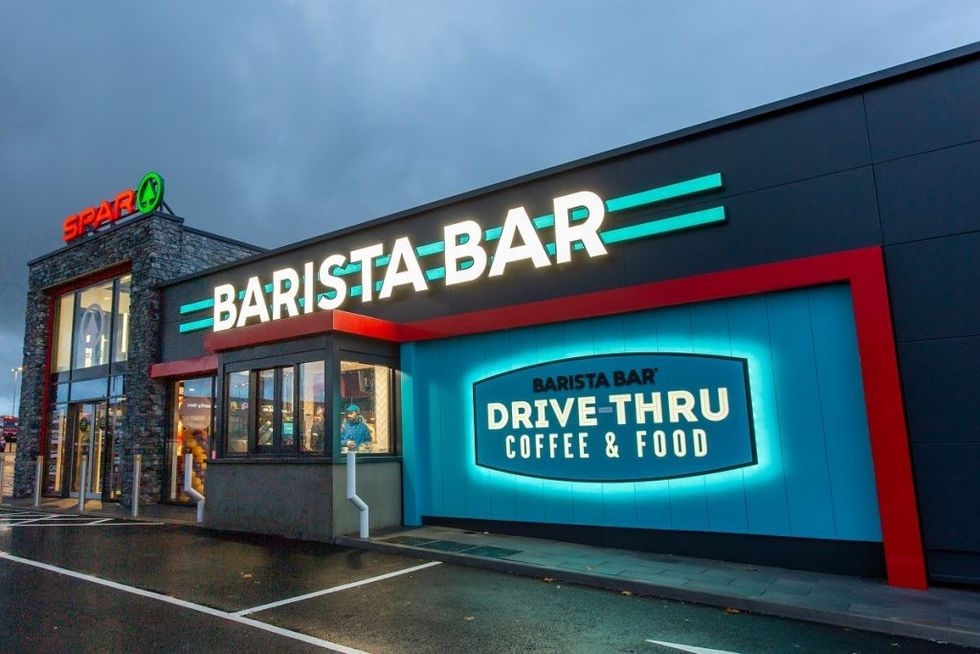
SPAR UK is supplied by five regionally based wholesalers – CJ Lang in Scotland, A.F. Blakemore in central and southern England and Wales, the Appleby Westwood Group in the West Country, James Hall in northern England and the Henderson Group in Northern Ireland. These are referred to as Regional Distribution Centres (RDCs), but they also run SPAR stores directly. They partner and support the estate, providing an efficient supply chain with 24-hour lead times so that stores remain stocked.
It is a unique structure and organisation, with Louise’s Central Office sharing out ideas to the wholesalers rather than exercising direct control over them, as Co-op or Asda might: “It’s a different challenge and a different relationship. You must think how you are going to influence people to start what you believe in and co- create and strengthen the ideas together.”
This appears to be a successfully devolved – successful because devolved? – arrangement. Even under lockdown (when many mults experienced problems with panic-buying shortages due to a reliance on traditional demand algorithms), SPAR’s 85 per cent availability under the first March 2020 lockdown had already shot back up to 97 per cent by that June.
“The connectivity of SPAR in terms of cross-functional working between the different RDCs, the best practice shown between the different RDCs, I think has then really held us in good stead," says Louise: the joy of distributing locally.
Challenging conditions
That is not to say that current market conditions are correspondingly joyful, and Louise admits that business conditions remain challenging. “Whether that's challenging from a cost-of-living point of view or challenging from a product supply or labour supply angle, I don't think that's different for SPAR versus anyone in the market at the moment. Everybody is facing into those challenges and working it through from a ‘What does it mean to my business, and how do I then move forward? [perspective].’”
SPAR’s solution is to invest for the future. “The five different wholesalers are investing about £122 million between them this year [2023], and that's very much focused in two areas. One: stores, either renovation or new; and into warehouses and distribution and making ourselves more efficient. That investment is the bedrock. The second area is then really driving ‘The Joy of Living Locally’.
“We created a proposition out of the activity through the pandemic," she explains. “We stood back and asked customers how can we drive a point of difference for SPAR? For us, that's embedded in Joy of Living Locally, but still with the strapline of ‘There For You’. So having value on your doorstep, nurturing our neighbours, the community side of the store, and then passionate about local in terms of the people but also the local content within the store.”
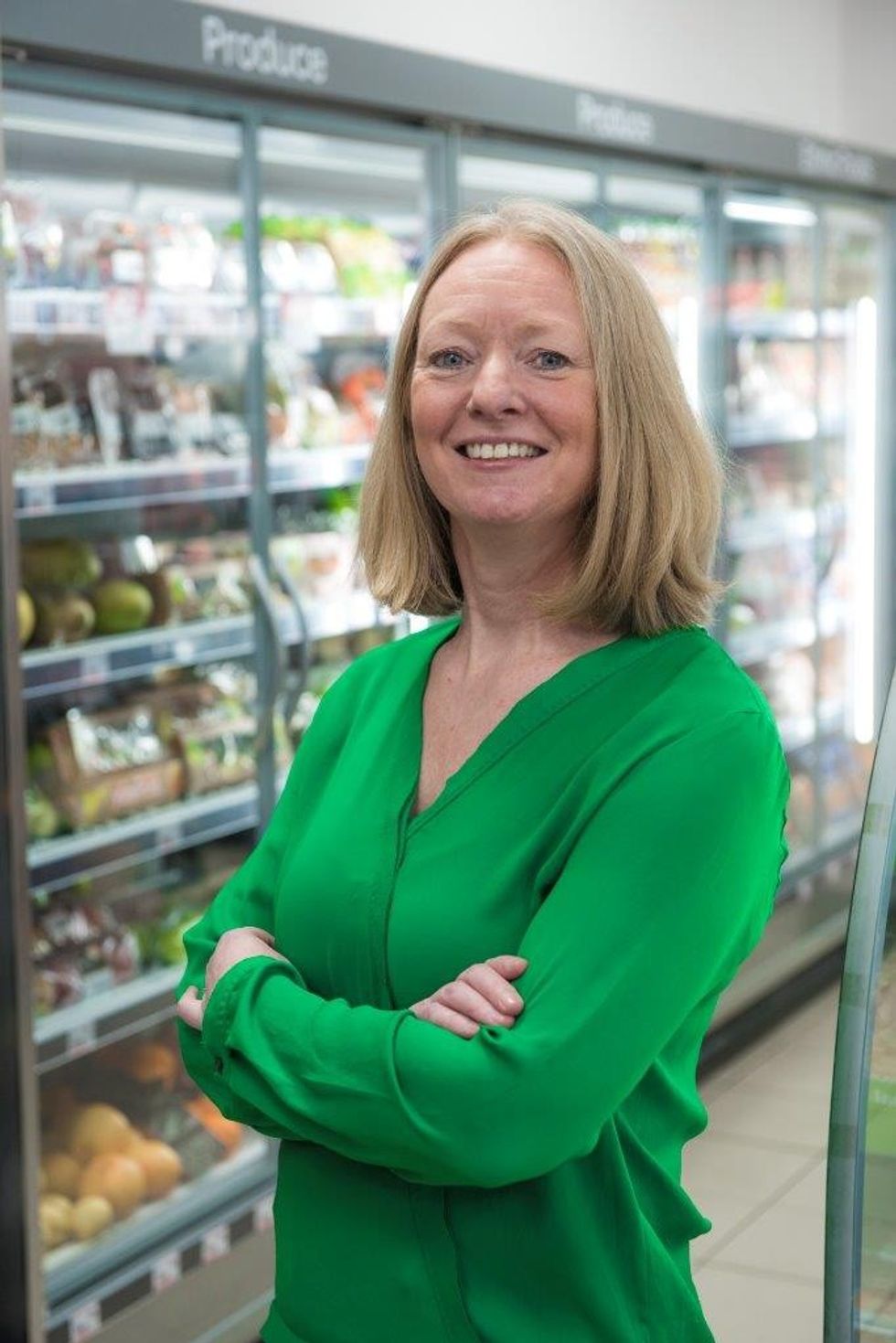
It is the “personalisation” of the stores, allowing them to be authentically part of their local area, with a great degree of independence, a lot of local produce and locally supplied stock, that marks out the seriousness of the campaign.
“We'll continue to expand those pillars,” says Louise. “In January we will come out with strong value campaigns and will continue pulsing value campaigns through the year, and at the same time we will have more nurturing our neighbour and community activity.”
Within the stores the SPAR Markets – “a format that we've developed, that is a fresher, food-for-now, food-for-later type concept” – will continue to be rolled out. (It is a format designed especially for larger convenience stores, but Louise says that at the same time they will be testing a blueprint proposition for the smaller store estate.)
Ideas and having good ones are a big part of how Louise runs SPAR, and the international dimension helps in the sense that it provides a ready-made “family” of foreign chains where strategies and innovations can be tested and played out – a laboratory of cooperation.
“I think the company being part of SPAR International has given us more knowledge of what has happened in the in the world over the last couple of years,” Louise says.
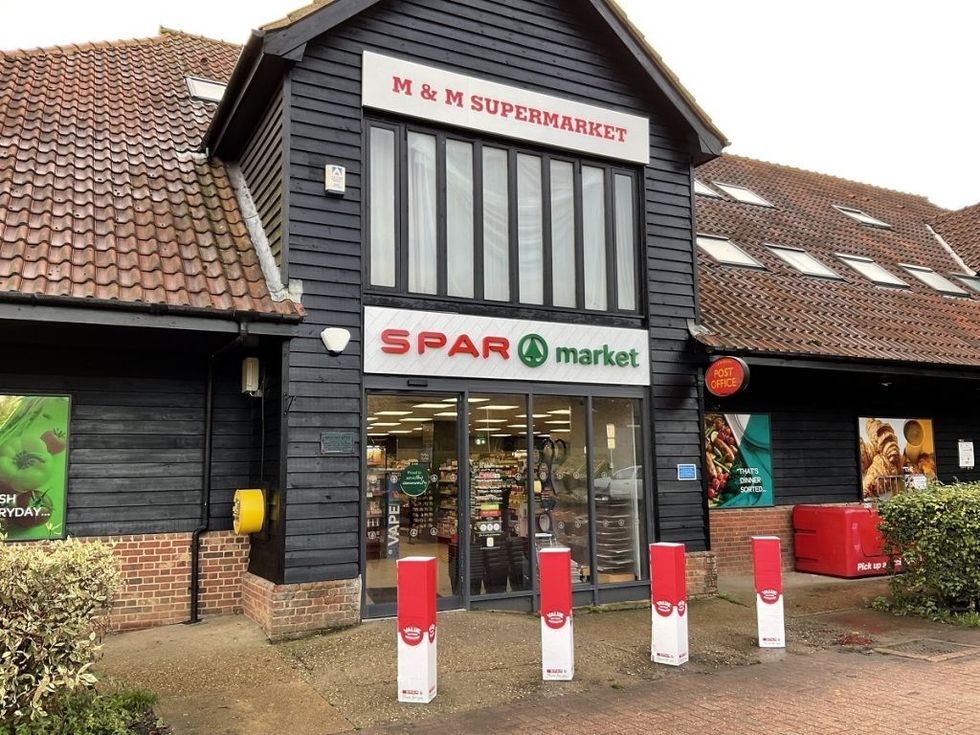
SPAR UK operates independently from the European branches but is free to be as much or as little involved as it wants. “So, for me, they are a brilliant resource as a consultative operation and as a partner,” says Louise. “If I took [shopper] loyalty as an idea, they have developed different loyalty activities in different markets, and they would share that out to the SPAR countries.
“For me, I think they're a real benefit to SPAR UK because it means we can connect and have best practice learnings from around the globe. We're going as a board in February to look at SPAR Netherlands, because they've just relaunched all their convenience proposition. My marketing team were in Norway recently, because SPAR International had said that Norway is probably one of SPAR’s best markets for how they bring Nurturing Our Neighbour and Passionate About Local to life.”
This hinterland of resources constitutes an enormous degree of basically free creative capital, and it energises and supports what SPAR UK does.
“I think it gives us that real insight where you have a conversation that's a family conversation rather than a business-to-business conversation," she adds. “There has just been a whole conference for the teams, from IT and Logistics to Marketing and Buying, all internationally to get together and share best practice about what are they doing.”
The right mix
"I think [the international element] definitely positions SPAR as different in the market. Independents. Our blend of company-owned stores and independents is quite different as well,” Louise points out.
It is clear that another part of SPAR UK’s success and ability to fit into the community is the way that although they are a long-established and continent-wide organisation, the brand has been able to retain the feeling of being independent retailers, as opposed to the cookie-cutter and somewhat corporate appearance and experience of the Sainsbury or Tesco local ventures, for example.
Louise says that SPAR UK is two thirds independent and roughly a third company-owned, and she says that it shows in the attitude. “The other piece that makes us different in the market is the approach we have to the independents. We want to partner with them, to look at them and ask, ‘What is your business plan? How can we help grow that business plan? How can we properly support where you want to take your business in five to 10 years?’”
There is certainly an impetus towards establishing micro chains rather than staying single-site, and I remark that when we get news about SPAR, it's very often ‘This is so-and-so’s new next store’, and it's often also quite large. Individual c-stores in general seem slowly to be getting bigger, but entrepreneurial indies of this generation are also adding more sites to their operations. Is this a SPAR trend as well?
Louise replies, “I think it's the case that there is a group of independent people who are growing their stores or growing their estate. We would work with independents, if they want to have more than one store, to try and help them and support them financially to be able to expand, and I think there is a trend that stores are getting bigger, which helps in terms of the mix of the product range, if you've got more capacity to be able to have a broader range, particularly of fresh, and I think it helps you your P&L more.”
This brings us to another couple of topics I am keen to ask about: the expansion of in-store services that we mentioned, and also SPAR’s ambitious expansion of its own-label range, which seems prescient as inflation drives value purchases and often means that big-name brands are deselected by hard-pressed shoppers. Regarding services and amenities, does this tie in with the concept of designing the locally focussed shop around the identified shopper mission?
“The vision is more to totally be 'What's the mission in the population of that store?’” agrees Louise. “It isn't to be everything and to be a one-stop shop, but it is to service the needs of that population that's around it.
“I'd say we definitely want to develop food to go and food for now and I think particularly during the course of 2023, as people eat out less and save money from not eating out, the opportunity to delight them with things that they can eat in, I think is good, whether that’s food for now or food for later.
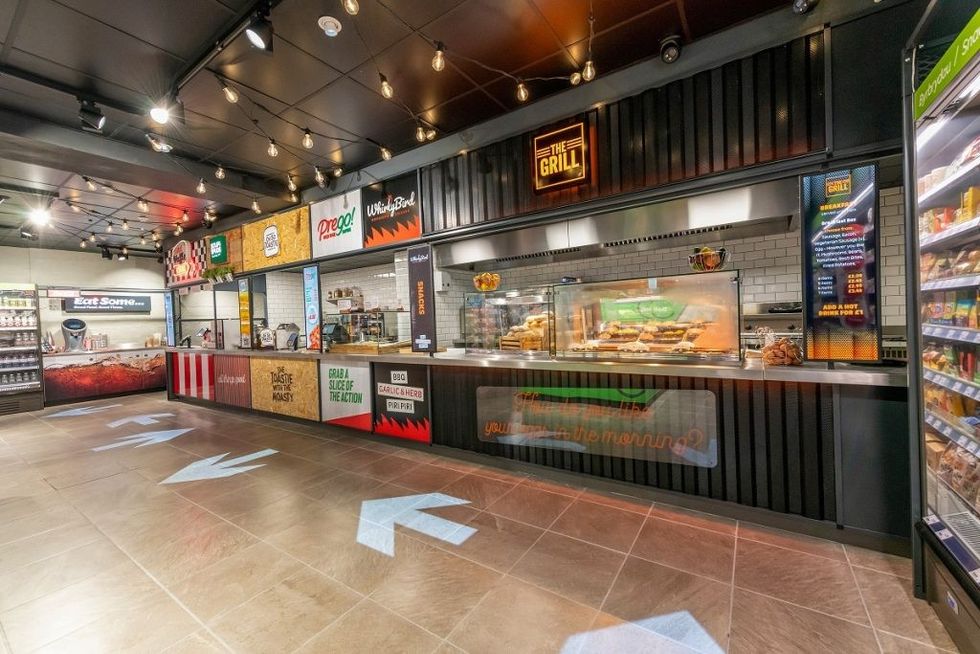
SPAR has its daily Deli range, run as a national brand, of course. “Whether it's through independents’ own brands – because quite a few of our independents have developed their own propositions – or whether it's through a food-service brand, for example Henderson's are trialling it at the moment in Northern Ireland under the name of Delish. You’ll also have seen Blakemore’s trial of ‘Street Food’.”
Is it a period of experimentation, then? “We've got lots of trials going on at the moment to see how we expand and develop what's the right offer for food service for the future, or food to go for the future, because that is a good point of difference. We definitely want to expand the offer within the store to service more of the customer needs.”
She points out that in Northern Ireland, a new SPAR in Mallusk not only has drive-thru, but as customers walk into the store there are digital screens to order food, “And then you go through to hot and cold food-for-now counters.” Likewise (Ireland always seems to be a trailblazer), Mulkerns in Newry has a kitchen preparing chilled and piping-hot ready meals: “The amount of Sunday lunches that they sell is just unreal,” laughs Louise.
Home on the range
Louise is serious about being more single minded about mission, seeing market differentiation as key to growth and revenue in a squeezed economy. "What I have seen in Holland, and that that really impressed me with the Netherlands’ ranges was they are a lot more single-minded in terms of what's the mission of the store," she says.
“Now, we need to make sure that culturally it still works in in the UK, but I think there is a benefit of being a little bit more single-minded, rather than trying to be all things to everybody. What are the people around that store wanting? And how do we deliver that? That does get broader as the store gets bigger, and it becomes more a neighbourhood store, then you have more and more opportunities within it.”
Another thing that defines the brand is of course its private label products. Just as 2023 looks to be a great year for the comeback of ambient, so it also appears a perfect time for own brand sales alongside – stresses Louise – continued sales of traditional brands that customers love. SPAR has recently grown its own ranges to an enormous 1,000 product span, across all the categories.
“I think it's a means for a retailer, an opportunity, to have a point of difference with a SPAR brand because it's only available in a SPAR store. It gives it provides them a piece of loyalty. It provides the shopper with an opportunity to buy something that's at a good price, so own label definitely helps from a purse strings point of view. And generally, it's a sort of a permanently everyday price rather than a promotional price.
“We are seeing it grow now, but do I think it will necessarily detract from brands? No, because I think there's lots of categories where you need a really good balance between own brand and brand. I think the two will continue to sit alongside each other. I think that where people are strapped for cash, that it gives them the opportunity to have a value option.”
The other ingredient that cements all this together – the mission initiatives, the localism, the international brotherhood (or sisterhood) and the identity from fascia all the way to new SPAR-brand products, is of course the structure of the operation, the RDCs, which I want to go back to because it seems unique and advantageous, and which provide both horizontal and vertical integration to the business.
“They all now have company-owned stores for SPAR. And they have independent stores, too. They operate the licence for SPAR, and they wholesale to independents, and then two have slightly different remits as well. For example, Henderson’s also has Hendersons Technology; A.F. Blakemore has Blakemore Wholesale Distribution; James Hall has G.A.P. Convenience Distribution and all have a foodservice operation as well. They are all slightly different!”'
Logistics then and localism now: Louise points out what a great advantage this was during the pandemic, but it looks to be just as helpful as the latest set of crises rumbles on.
“I was just in Blakemore’s region,” says Louise, “and the store that I went to had local products, but also local regional products sourced from the wholesaler, Up in Derbyshire, in White's SPAR store, Edward White's actually got vegetables from just up the road, or he's got cakes from the local baker. He's got local, and then he's got hyperlocal. And then he's got the national range.
"The more you can support the local community around you, if there are people [who can supply you with] with eggs or vegetables … all of that for me is a good mix. And I think with some of that, it's easier to do it at a local level rather than top down, because the risk is coming top down.”
And then beyond that, international support. It seems like the perfect integration.
"We want the independents to be entrepreneurs, and if there are good hyperlocal products around their stores, which gives SPAR retailers a real point of difference. We must respect – which I think our wholesalers do – that we have a large degree of independents, and it is their business, and they want to put their own mark and their own personality into their store. And actually,” concludes Louise, “let's celebrate that!”





